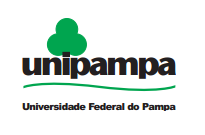PPGEE has two concentration areas:
- Information and Communication Technology
- Energy Processing
INFORMATION AND COMMUNICATION TECHNOLOGY
Information and communication technologies are increasingly present in modern society. Almost a third of the world population has access to the Internet, 80% through smartphones. The rapid growth in access to this type of technology makes it necessary to develop new ways of transmitting, storing and manipulating information. In developing countries this technology is even more important, with a direct impact on the social and economic environment. Many technological solutions in this area are of global application, but it is also necessary to develop optimized solutions for each region. In the case of Brazil and in the Pampa Gaúcho region, in particular (characterized by its agricultural vocation and low demographic density), it is necessary to develop alternatives for digital inclusion in urban areas and to increase productivity in rural areas through technologies that meet the characteristics of these regions. The technology from the fifth generation of wireless system (5G) will allow high speed data transmission and low latency, providing real-time interaction for services using cloud storage, for example, and full integration with embedded systems and Internet of Things (IoT) devices. This will bring direct benefits to processes related to precision agriculture, increasing crop productivity. It will also allow more efficient control in the management of pests and diseases in animals, in addition to minimizing the environmental impact caused by agricultural production. However, at the same time as the evolution of communication technologies occurs, it will be necessary to develop new technological resources capable of taking advantage of these characteristics and adapting them to the regional reality. Thus, this concentration area focuses on the development of techniques and methodologies for integrating technological resources through hardware, software and telecommunications, allowing the automation of processes in an optimized and applied way for regional solutions. The graduate student must have access to state-of-the-art knowledge of methodologies for accessing, storing, transmitting and manipulating information in the form of electrical or optical signals. This area of concentration provides a solid and updated training, preparing the student for the realization of cutting-edge research.
ENERGY PROCESSING
Due to the growing demand for electricity, there is a need for studies that contemplate both the phases of its production and its use. In this way, those that concern the generation, transmission and distribution of electricity, as well as the processing of this energy via robust devices, equipped with elements of power and control electronics capable of mitigating undesirable effects throughout this process, are highlighted, allowing thus producing energy with higher quality and using it more reliably and efficiently. Environmental issues are also highlighted, which are becoming increasingly demanding, so that they affect the production and use of electric energy, so that alternative and non-polluting forms of energy are increasingly used. Thus, research is also needed on renewable and efficient forms of energy production. Also, studies on topics related to smart grids, as well as on systems protection and electricity quality, stand out. In this context, research on the application of mathematical and computational techniques of signal processing in protection relays, as well as the application of optimization methodologies in problems of planning and operation of the electricity generation, transmission and distribution systems, in addition to the development robust devices capable of managing the energy produced and optimizing industrial processes in terms of efficiency and robustness are the focus of studies in this area of concentration.
HISTORY
To view concentration areas prior to 2020, click here.
